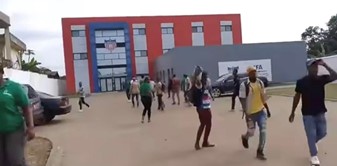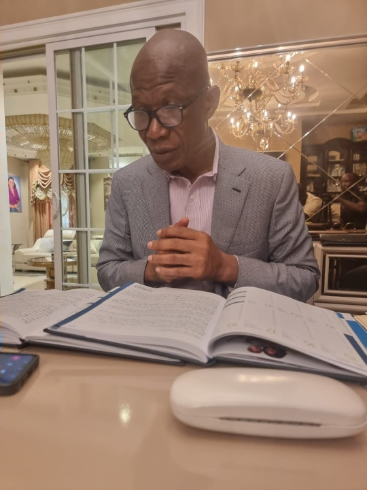Climate Change Czar, Jeremiah G. Sokan, has told a gathering of school children, youth and representatives of several communities in Buchanan, Grand Bassa County, that climate change produces serious disaster, including coastal erosion and flooding.
Sokan, Coordinator of the National Climate Change Secretariat (NCCS), said coastal erosion caused by climate change is affecting coastal cities in Liberia.
He predicted that Monrovia, Liberia’s capital, will have to be relocated due to marine transgression.
Speaking at a one-day stakeholder’s consultation and sensitization meeting on climate change adaptation in Buchanan, Sokan disclosed that other coastal cities like Buchanan are also at risk.
“Liberia’s coastal cities, including the capital city, Monrovia, are extremely vulnerable to the climate change impacts of sea level rise and the increasing frequency of high-intensity storms, both of which contribute to coastal erosion and shoreline retreat,” he told the gathering.
Sea level rise is a significant contributor to accelerated coastal erosion, and along with the increasing intensity of offshore storms and waves, exacerbates coastal erosion, the impacts of which result in severe damage to buildings and infrastructure in the coastal zone.
Sokan reiterated that the country is increasingly vulnerable to climate risks and climate-related hazards due to low adaptability, weak human and institutional capacities, technology, infrastructure, financial systems, amongst others.
He underscored the need for people to start building homes and other structures resiliently, so that they stand the test of time.
Sokan also wants engineers building roads across the country to climate proof roads being built so that they do not wear away easily.
He encouraged students at the one-day stakeholders’ consultation and sensitization meeting to take climate change and environmental awareness very seriously.
Sokan called on them to establish environmental clubs in their schools and consider doing science courses in universities and colleges when they graduate from high school.
The meeting, which was held under the auspices of Environmental Protection Agency (EPA) and the African Development Bank (AfDB), was intended to enhance climate change information systems for resilient development in Liberia.
The gathering was also intended to enhance national and local ownership in the implementation of coastal defense projects, and at the same time create avenue for smooth implementation. It was also intended to enlighten stakeholders about the projects, including their objectives, approaches, main components, planned outputs and activities.
The interactive meeting with the students, youth and communities’ representatives was climaxed by a tour of the beach near the city.
Climate vulnerability severely impacts Liberia’s priority sectors, including agriculture, food security, health, energy, water resources, forestry and wildlife, fishery, mining, industry, transport and tourism.







